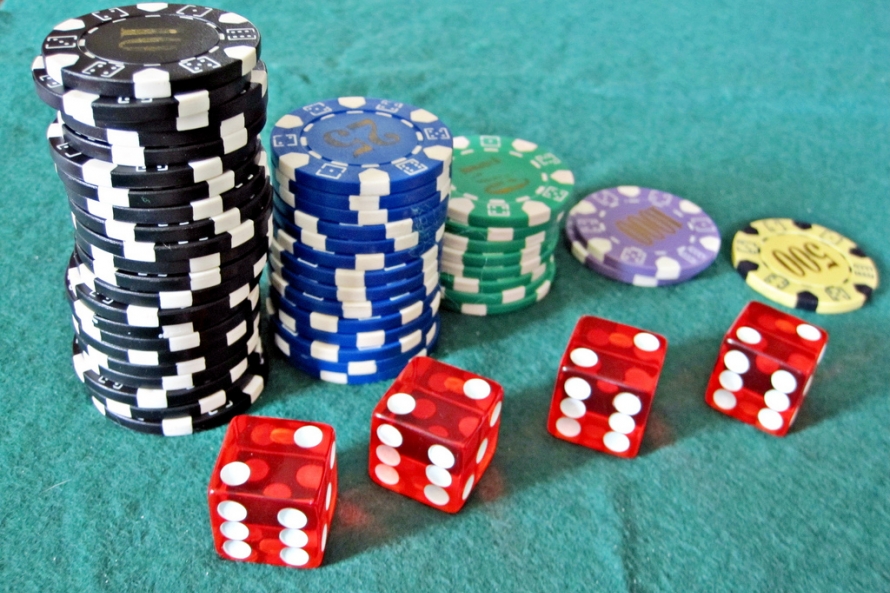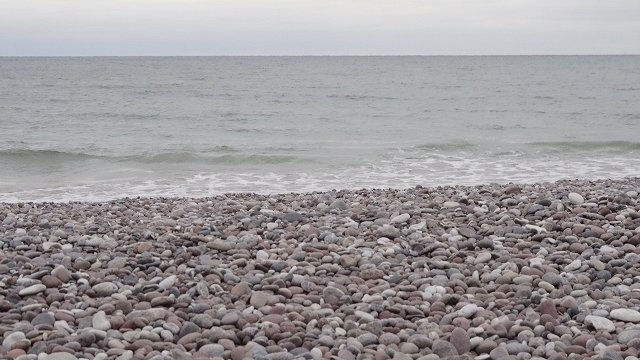The times when there were more than 500 gambling houses in the country, and when some crossings in Rīga looked like something out of Las Vegas, seem to have gone for good.
"It will never be as it once was," said Arnis Marcinkevičs, adviser of the Latvian Gambling Business Association. Signe Birne, the head of the Inspection for Monitoring Lotteries and Gambling, agrees, saying that the 2009-2010 crisis has done the most to hit the industry. The gambling houses' revenues dropped by some 50% during the economic downturn.
Due to several factors, including the downturn, a consolidation is taking place in Latvia's gambling industry. The large and the successful are buying off those who fare worse. The only way to develop your business is purchasing the competitors' houses, as municipalities aren't handing out licences for opening gambling houses, said Marcinkevičs.
Graphic: The number of casinos in Latvia by year. The Latvian language distinguishes between a 'casino' and a 'gambling house', with the former basically being a more posh version of the latter.
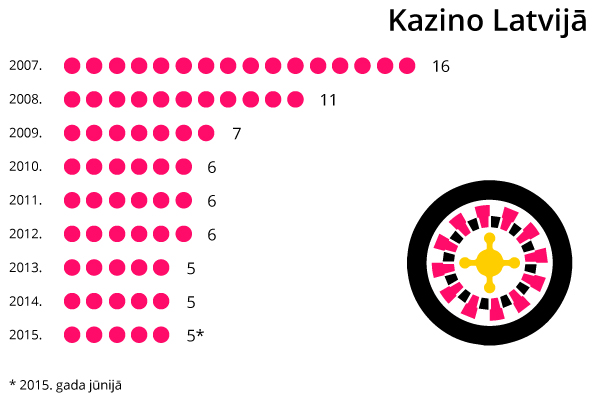
One of the most important factors for why gambling houses have been closed and why "one armed bandits" are becoming less and less common is cited to be the municipalities' stance. That is, most municipalities don't allow new gambling houses to be opened within the bounds of their jurisdiction.
Dainis Turlais, head of the Safety, order and corruption prevention committee of the Rīga Municipality, said that surveys say that "[...] Society - more than 70% is firmly against gambling houses, especially in Old Rīga. People are simply discontent with the noise coming from night clubs and gambling houses, disturbing their sleep, and [with the fact] that - and it is all but a law - a pawnshop will be neighboring the gambling house," so that people with gambling problems can quickly sell off their valuables.
Graphic: the number of gambling houses in Latvia by year, with data for 2015 being recorded on June this year.
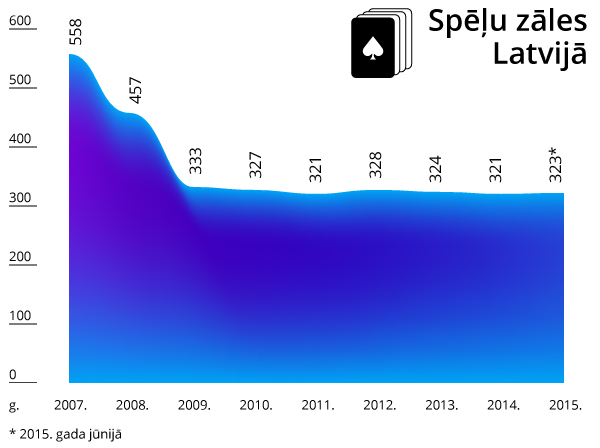
As new licences aren't issued, an existing licence has become a thing of considerable value. Jānis Zuzāns, head of the SIA "Alfor" gambling company board, revealed that the value of the licence encourages to keep unprofitable gambling establishments going.
Zuzāns estimates that about a quarter of the gambling houses in Latvia are unprofitable and shoul be closed. He said that the establishments will be closed if the government and Saeima decide to raise taxes for the industry.
On the other hand, though, the turnover of the companies is growing, as illustrated by this graphic (turnover of the gambling industry in millions of euros).
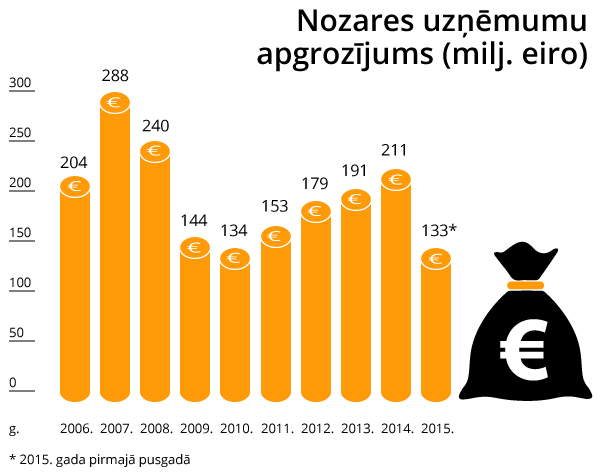
However, the tax revenue depends first of all on the slot machines in use. That is, if a gambling house is closed and the slot machines aren't operating anymore, the tax revenue shrinks. That's why the income in the budget is growing slowly, explains Signe Birne.
Graphic: income from the lottery and gambling tax in millions of euros.
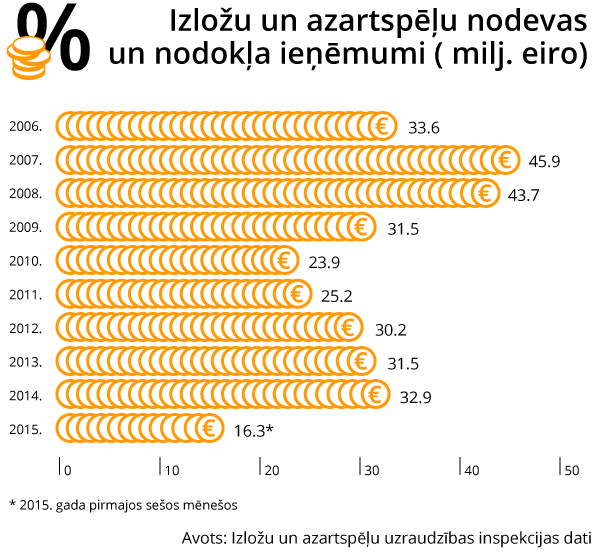
In 2013, the Finance Ministry concluded an agreement with the Latvian Gambling Business Association that all of the slot machines are to be connected into a single network. All of the costs should be covered by the industry - about €17m to €18m are required for changing the slot machines.
Infographic: the average number of slot machines in a month.
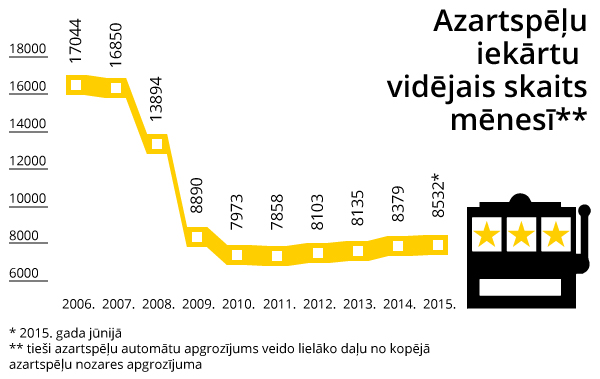
While the association mulls over how to react to the proposed tax increases, one thing is all but sure - that the halcyon days for gambling houses in Latvia are over, and only a few big names will remain in the industry.
